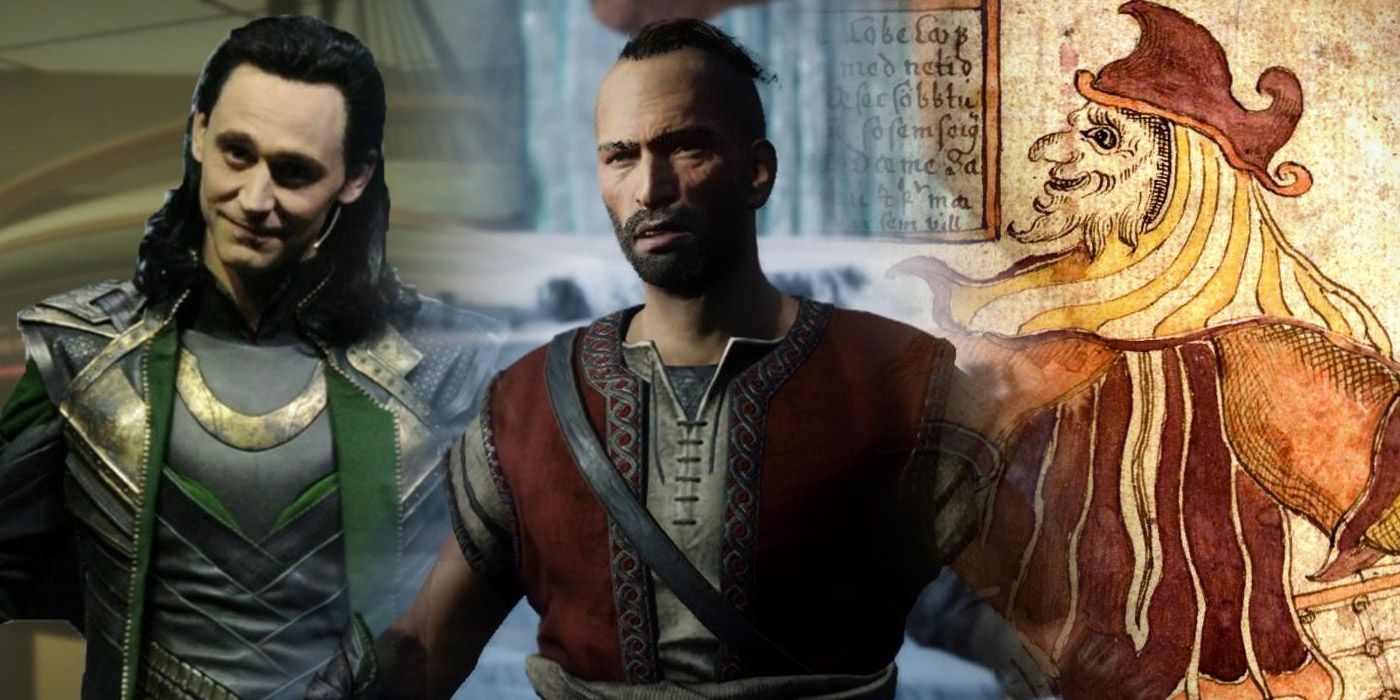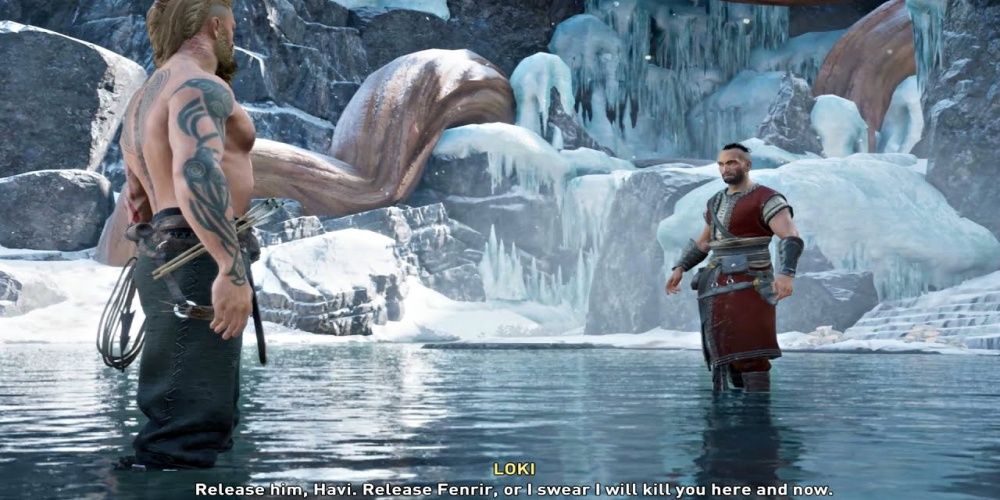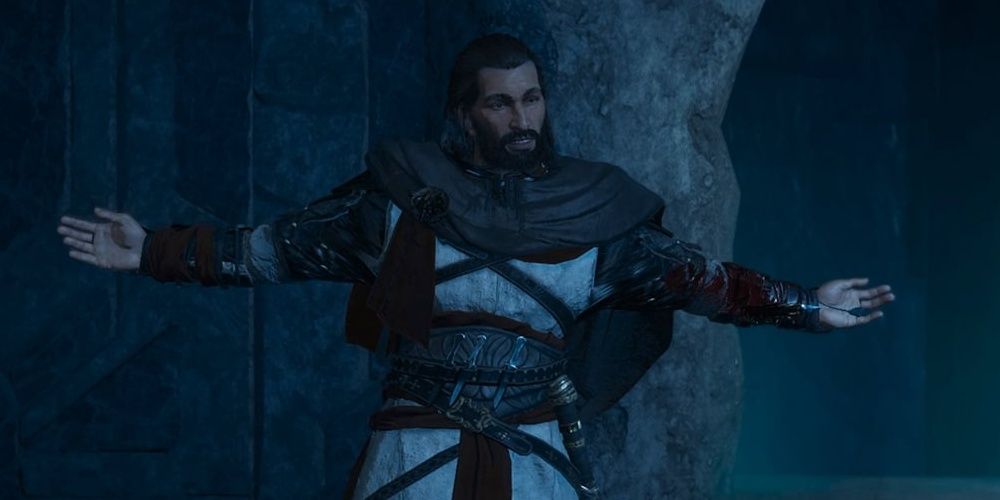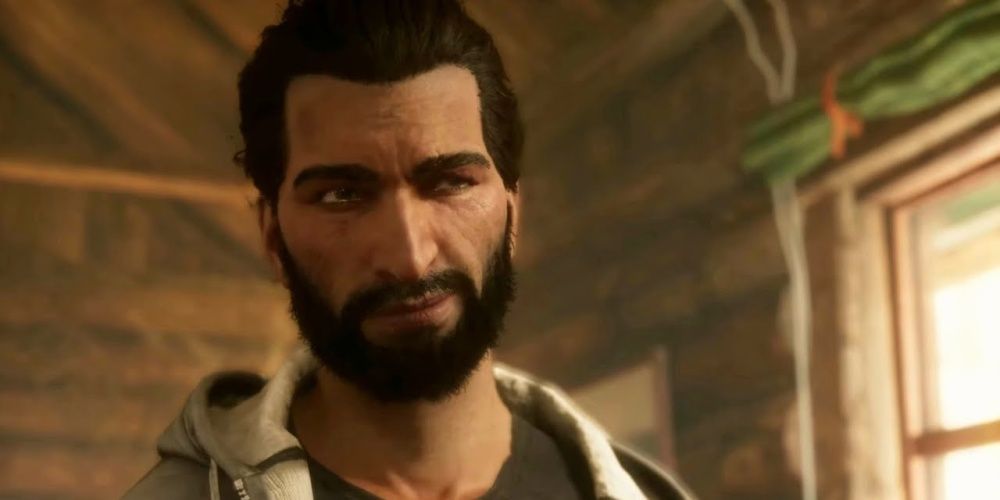
Loki has always been a popular character from Norse mythology, but perhaps recent years have seen his popularity surge. Not only has there been his role from trickster to villain to the redeemed (sort-of) brother of Thor in the MCU, but the character has received his own applauded Disney+ show. Moreover, God of War uses Loki with quite the shocking twist, and Assassin's Creed Valhalla has followed suit.
One constant of the Loki variants per the Disney+ show is that they are survivors, with that being obvious across most media incarnations of the character. Yet, as the God of Mischief, that often plays some role too beit playful or more deceitful. It's common to see some big plot twist happening with Loki involved, with that too able to be said of Loki in Assassin's Creed Valhalla.
RELATED: Assassin's Creed Infinity is Evolving World with Multiple Settings

The Loki of Assassin's Creed Valhalla is actually an Isu, a typical explanation for mythologies in the franchise. He belonged to the Norse/Aesir group under the command of Havi/Odin, and was married to the Aesir Isu Sigyn. However, Loki would go on to have an affair with the Isu Aletheia, also known as Angrboda, from whom he had three children: Fenrir, Jormungandr The World Serpent, and Hel. Loki appears to be a dedicated father, going so far as to challenge Havi over the imprisonment of his son, Fenrir.
Loki considers it a betrayal of sorts, as the main reason Havi imprisons Fenrir is due to his own paranoia. In retaliation, Loki poisoned Baldur and harbored hatred for him. Having transferred his lover Aletheia's mind into the Staff of Hermes already, Loki ensured his survival during the Great Catastrophe by killing one of Odin's allies and taking their place in Yggdrasil. Years later, the Norse Isu would be reincarnated (each having a mark on their neck): Havi would be reincarnated as Eivor, Tyr as Sigurd, Loki as Basim, Freyja as Svala, Freyr as Harald Fairhair, Thor as Halfdan, Heimdall as Rig, Idun as Gull, and Sif as Faravid.

While the Norse incarnations were scattered by years and locations, Basim/Loki was the furthest and originally part of the Abbasid Caliphate. It seems that each reincarnation deals with their newfound memories in different ways: Sigurd was ready to embrace his former life as Tyr up until a point. Eivor rallied against her fate and memories as Havi, struggling against her innate nature throughout the game. But, it was never really clear how long Basim/Loki were effectively one. Perhaps it's because of the memory of his love, Aletheia; perhaps it's because of the memory of his children, especially Fenrir; or perhaps it wasn't as intuitive as many initially thought. Either way, it's clear that when Basim attacks Eivor at the end of the game, Basim/Loki are truly one in the same.
RELATED: 5 Settings Perfect for the Assassin's Creed Infinity Project
And he attacks her then because it's finally clear she is Havi's reincarnation. Throughout the game, it seems Basim was suspicious of Sigurd being Havi's reincarnation, likely due to his role as leader of the Raven Clan. Eivor's nature, as well as refusal to betray Sigud (ultimately being player's choice) may have made it harder for Basim to determine. Either way, Basim attacks Eivor in a shocking twist, but his defeat and attachment to Yggdrasil may have all been part of his plan.

With Basim manipulating the Assassins from the Grey (not unlike Juno and other Isu) and Aletheia emphasizing the importance of the staff and its keeper, Layla, Basim is able to escape Yggdrasil and trap her in the Grey instead of him. Assassin's Creed Valhalla's Layla gets to work with Desmond in order to prevent yet another catastrophe, but Loki (as Basim) effectively manages to outlive the other reincarnations and exist until the Modern Day. If Havi and the others get another reincarnation, like Aita's rebirth as Seers, that hasn't been made clear yet.
Without a doubt, it's not the betrayal and the attack that make this Basim/Loki twist so potent, but Aletheia's—her role in it all was well played. Between Loki and Aletheia, they've manipulated several time periods including the Isu's day, Ancient Greece (via Kassandra), England (via Eivor), and into the modern day. The big question is why, which Basim himself answers as he loads into Eivor's memory: he's still looking for his children.
How Fenrir, Jormungandr, and Hel could've survived to this time remains to be seen, but it seems Basim believes it to be the case. Assassin's Creed's Great Catastrophe wiped out the Isu, but there were several attempts by Isu to survive, so it's not exactly impossible. It's also worth noting that Fenrir may be remembered as a giant wolf, as Eivor sees Odin's memories in ways she could interpreted, but it's more likely he has a human/Isu form too. This would likely make it hard for anyone but Basim to find, but as DLC moves forward (if it connects to the modern day story), Basim may find his children in the third DLC or something akin to that.
At the end of the day, his attack on Eivor may have been a ploy at revenge, but it may have fallen to an ulterior motive too: survival. Loki clearly determined he may not be able to unite Aletheia and his children then, finding a way to survive into the modern day by tricking Havi into beating him. Of course, it could have not been intentional (it doesn't seem so), but this is the God of Mischief here, alive and well in the modern day with no Havi known to exist then.
Assassin's Creed Valhalla is available now for PC, PS4, PS5, Stadia, Xbox One, and Xbox Series X.
MORE: Assassin's Creed Valhalla Has Already Done a Lot of Set-Up for AC Infinity

